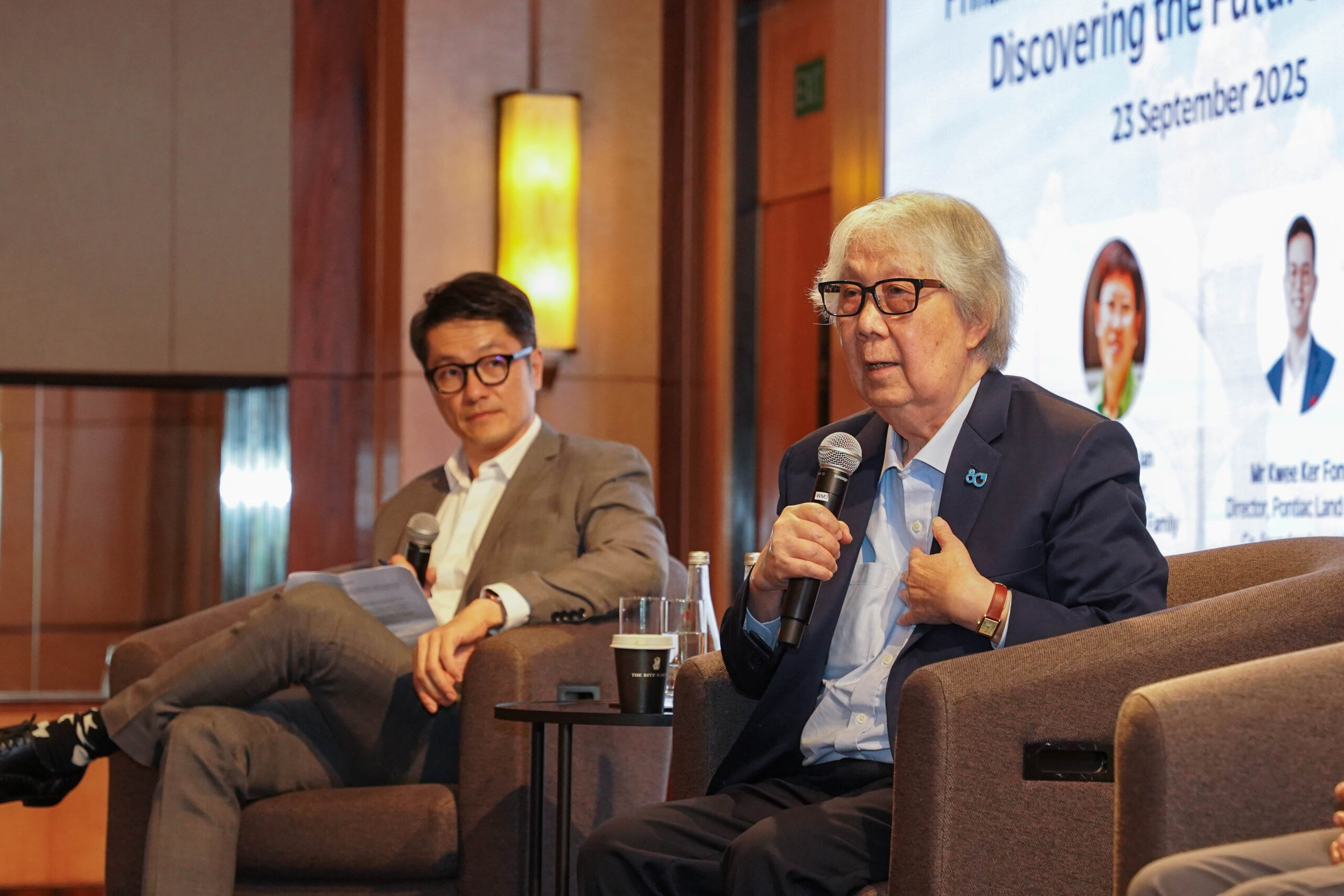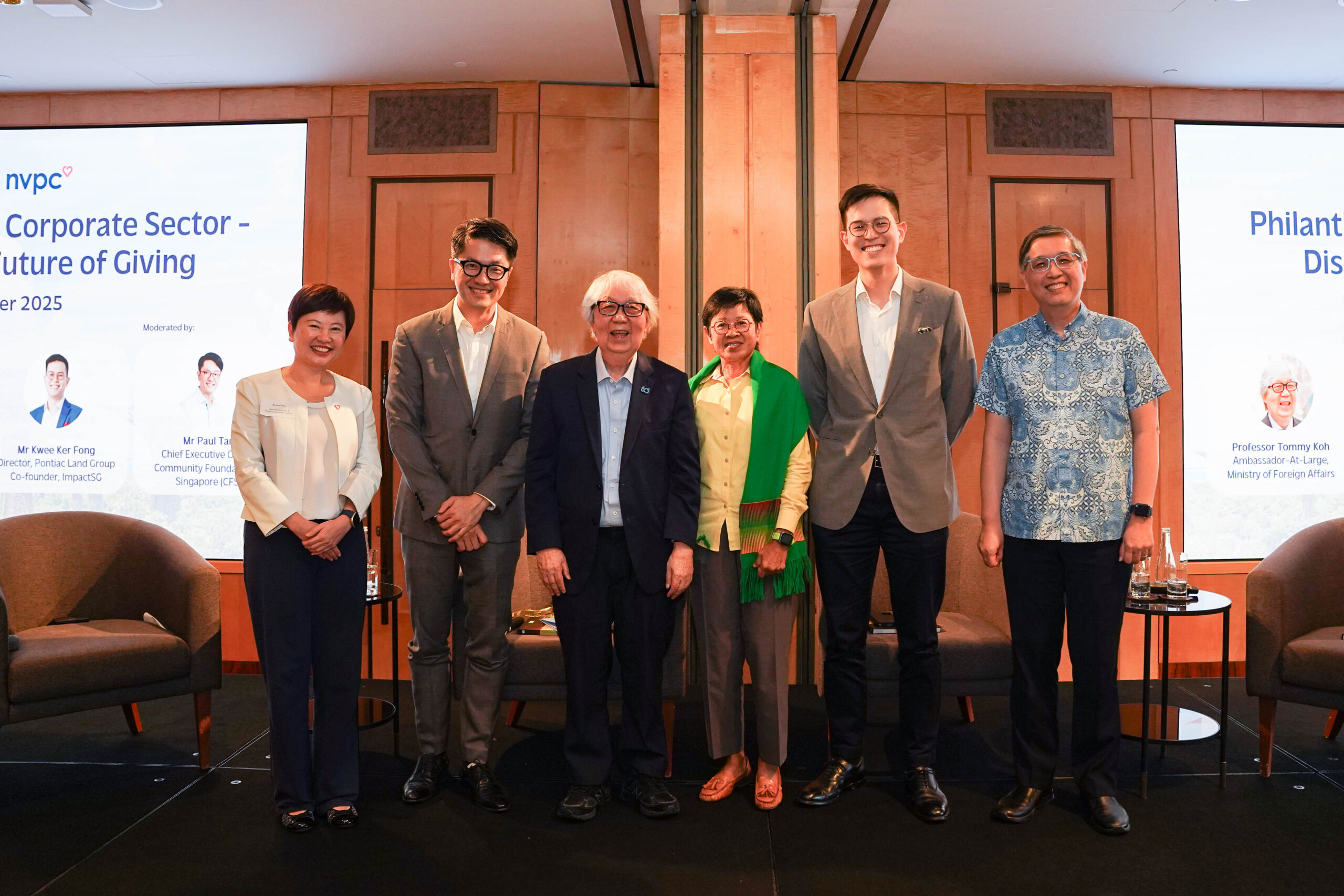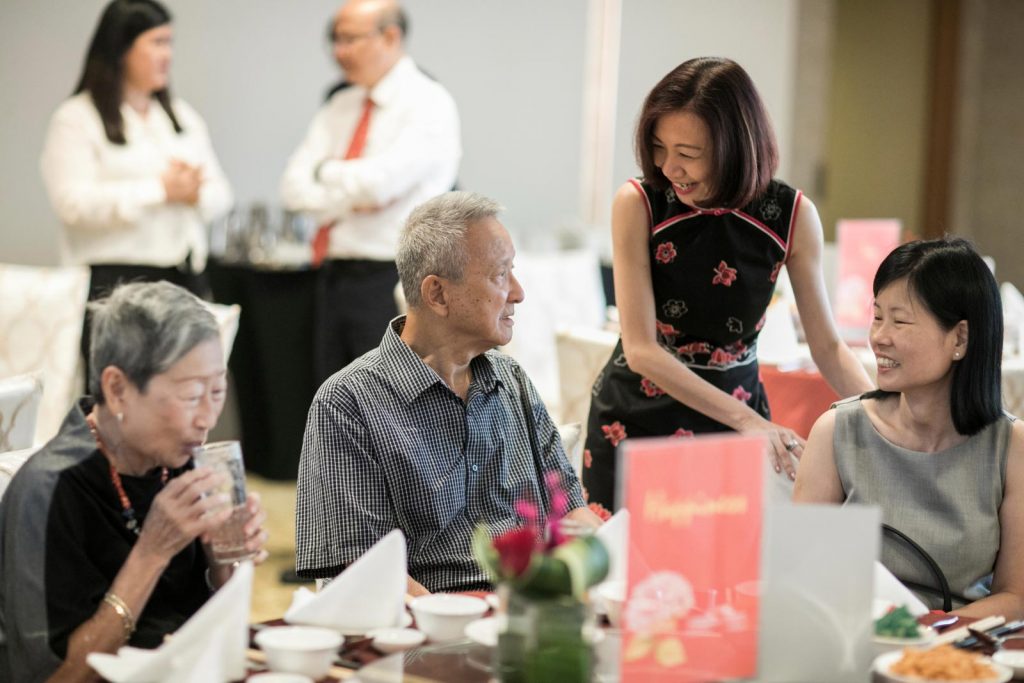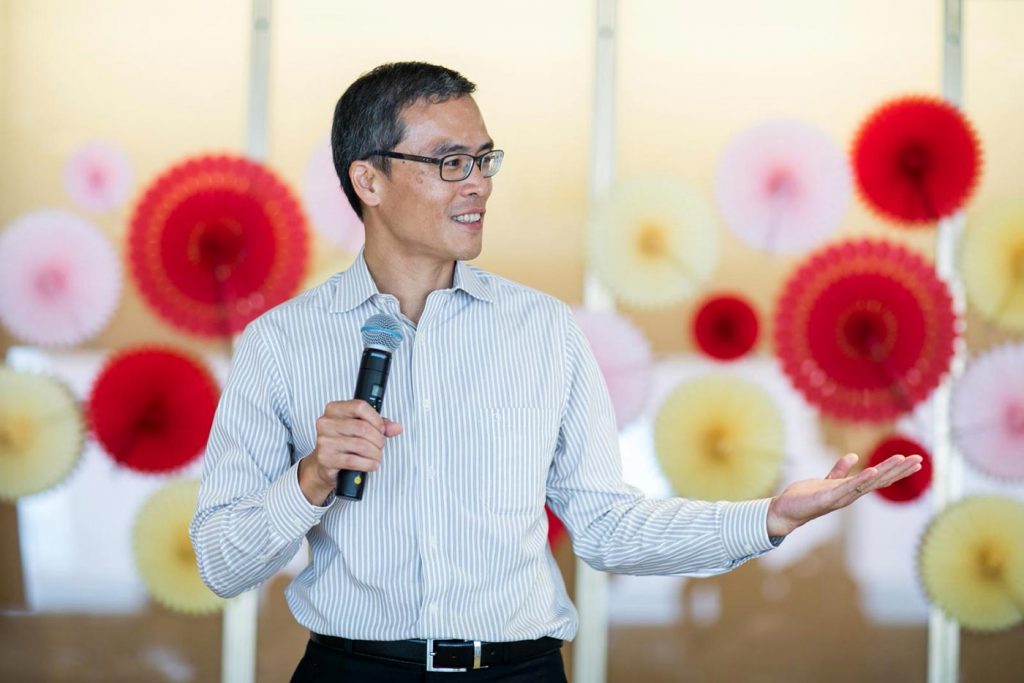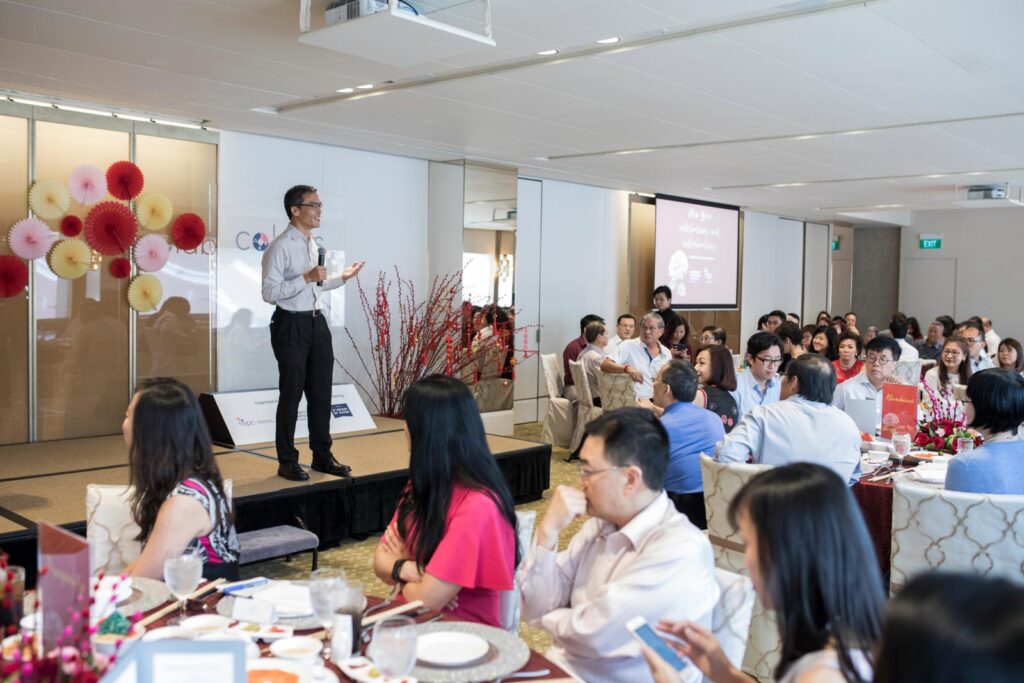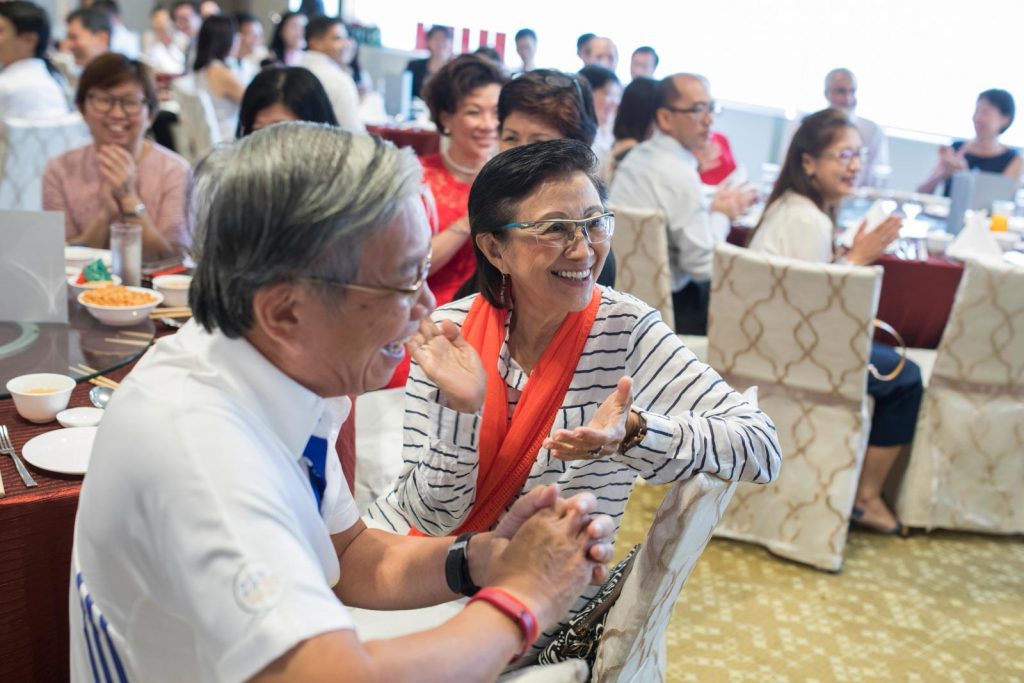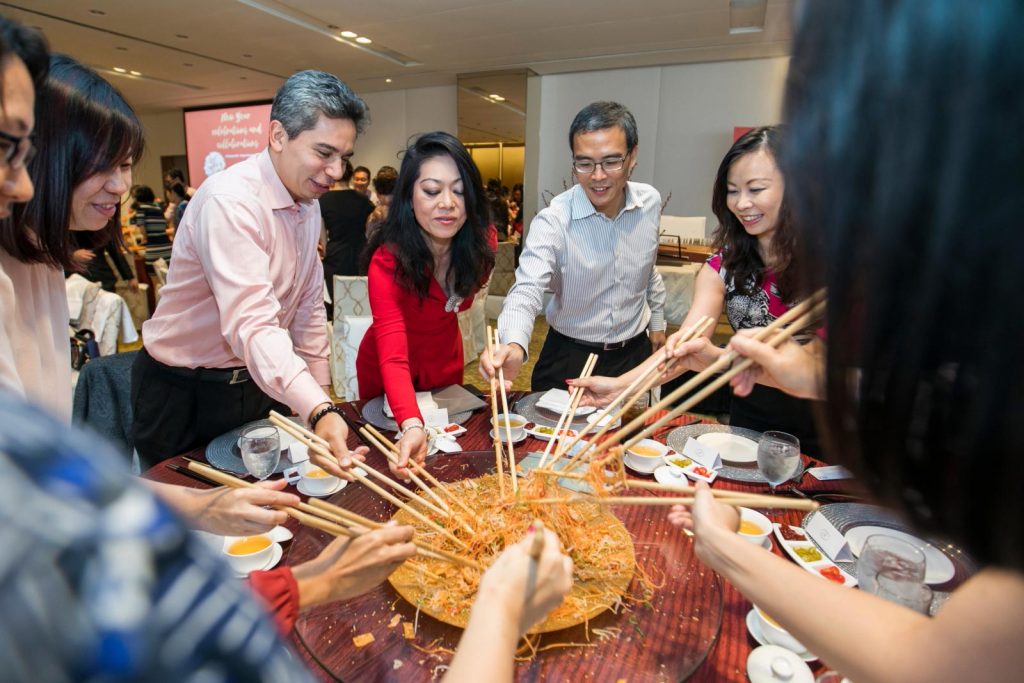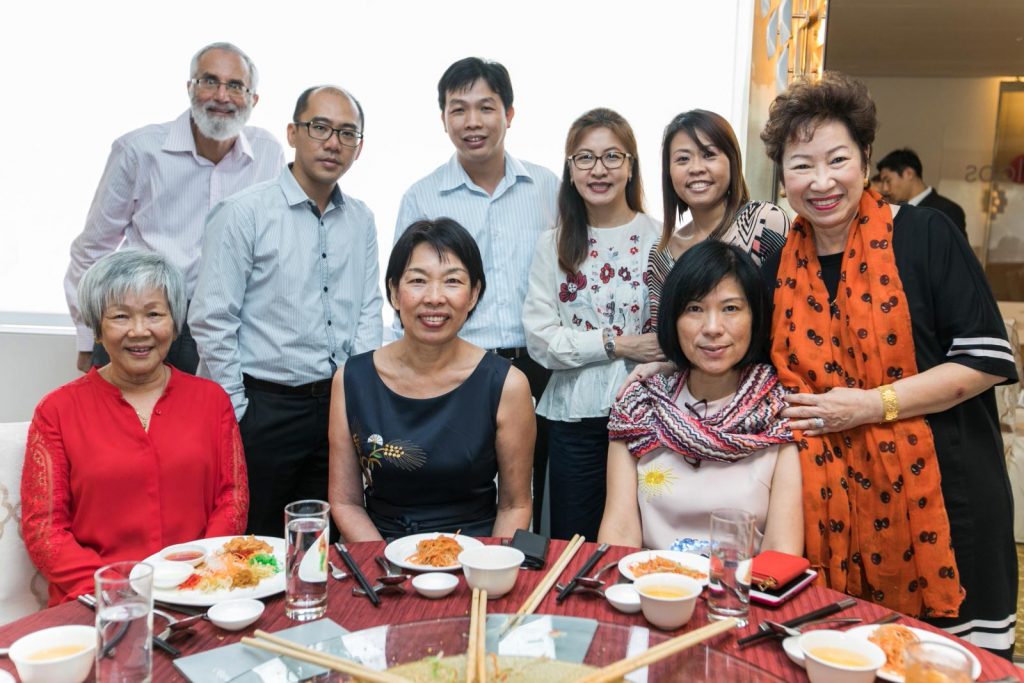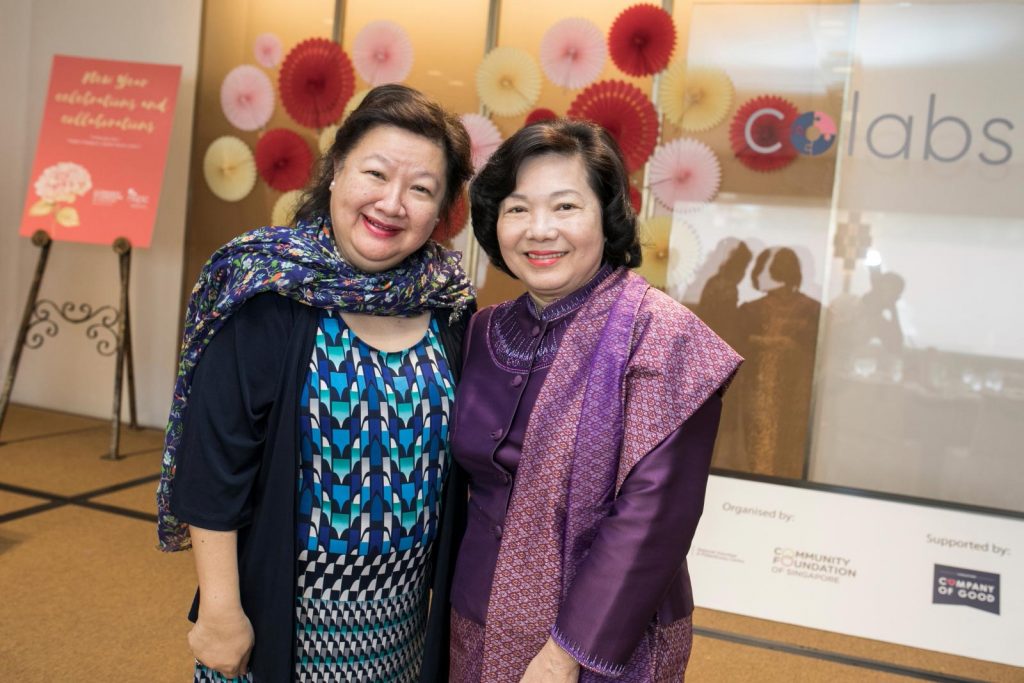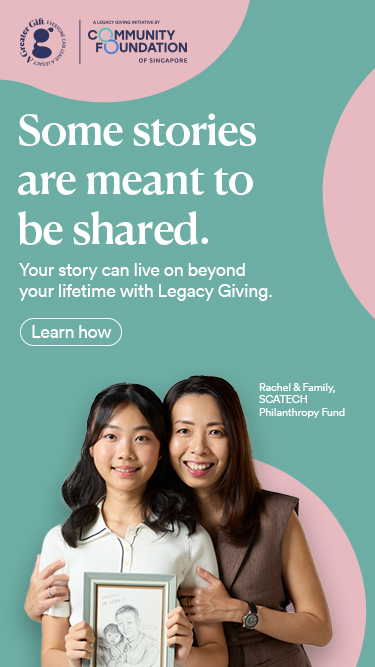Lunar New Year celebrations and collaborations 2017


This year, CFS’s annual appreciation lunch was held on 8 February at the Regent Singapore. Some 120 guests attended the event which is CFS’s way of saying ‘thank you’ to our donors, charities and partners for their unwavering support. True to the spirit of celebrations, there were happy handshakes, endless conversations and a festive, convivial atmosphere all around. Donors met charity partners, old friends made new friends.
National Volunteer & Philanthropy Centre (NVPC) joined CFS as co-host this year as we launched Colabs – a learning network that brings together different stakeholders in the giving system to enable greater and deeper social impact. Chairpersons Laurence Lien and Mildred Tan and CEOs Catherine Loh and Melissa Kwee of CFS and NVPC respectively put their collective signatures on the Colabs board to kickstart this exciting initiative. It is hoped that more signatures will be gathered as we embark on this collaborative journey.
As CFS CEO Catherine Loh said in her thank you speech, it is through the many collaborations between donors and partners that CFS has been able to enable so many impactful programmes through the years. We certainly look forward to many more ahead.
This year, CFS’s annual appreciation lunch was held on 8 February at the Regent Singapore. Some 120 guests attended the event which is CFS’s way of saying ‘thank you’ to our donors, charities and partners for their unwavering support. True to the spirit of celebrations, there were happy handshakes, endless conversations and a festive, convivial atmosphere all around. Donors met charity partners, old friends made new friends.
National Volunteer & Philanthropy Centre (NVPC) joined CFS as co-host this year as we launched Colabs – a learning network that brings together different stakeholders in the giving system to enable greater and deeper social impact. Chairpersons Laurence Lien and Mildred Tan and CEOs Catherine Loh and Melissa Kwee of CFS and NVPC respectively put their collective signatures on the Colabs board to kickstart this exciting initiative. It is hoped that more signatures will be gathered as we embark on this collaborative journey.
As CFS CEO Catherine Loh said in her thank you speech, it is through the many collaborations between donors and partners that CFS has been able to enable so many impactful programmes through the years. We certainly look forward to many more ahead.
- Related Topics For You: CHARITY STORIES, COLABS, COLLECTIVES, DONOR STORIES, EVENTS
